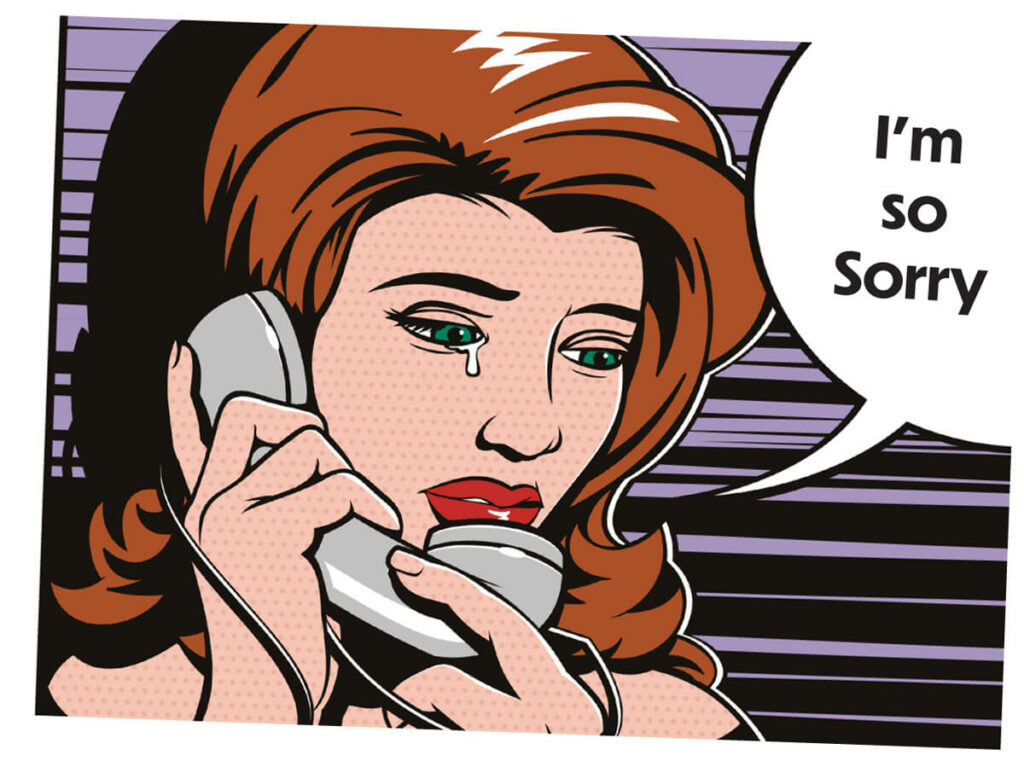by Connie Fourre

Anger is like fire, flaring up in reaction to threats to our wellbeing. A driver cuts in front of us. I hit my head on a corner. A teacher embarrasses us in front of the class. Anger usually flares up quickly, lasts for a time, and then cools down.
Anger is useful. The adrenaline accompanying anger gives us courage and the energy to push back when someone threatens us. An angry person packs more power in a punch and more intensity in an argument.
Anger also acts as an anesthetic. This painkilling effect helps those who live in a physically threatening environment, where violence is frequent and dangerous. When we are angry we are more able to push through pain and stay in a fight. The same anesthetic suppresses our own sensitivity to the harm we may inflict on someone else.
Most of us have said something in anger and regretted it afterward. Anger temporarily suppressed our awareness of how much our words can hurt another. Acting out anger can get us in trouble, but anger in itself is a healthy emotion. Resentment, on the other hand, is almost always toxic.

Resentment is suppressed anger, anger without an outlet, anger lying in wait for the next event. Like a smoldering fire that needs only a puff of wind or a bit of new fuel to rekindle its flames, resentment can flare up without warning.
When your sister takes your shirt without asking, or your dad says you can’t use the car, underlying resentment can precipitate a major confrontation. On a larger scale, resentment feeds most of the wars that fill our headlines.
Deeper than anger or resentment, hatred can be deadly. Hatred may be hot or cold, but it is always total. When we hate, we block out our awareness of the goodness in others. Hatred makes people capable of terrible acts.
Most of us carry an internal list of grudges. What is yours? Was there a kid in your elementary school who humiliated you or a mean girl who excluded you? How about an older brother who teased you or lied to you? A younger sister who came along and displaced you? The big kids who made you sit at the back of the bus? A teacher who made you feel you would never learn math? An ex-boyfriend or girlfriend who broke your heart?
Let’s say that in each instance you did absolutely nothing wrong and have no responsibility for what happened. Let’s say for example an ex-boyfriend cheated on you. He goes to your school and you see him in the hallways—with his new girlfriend. What happens when you see them laughing together?
How does resenting an old injury hurt us? Some people avoid going places where they might encounter a reminder. Some lose friends because others take sides—or refuse to take sides. Hurt from a previous romantic relationship can contaminate the next. Fear and mistrust can cause some people to be suspicious or pick fights, and a promising new relationship turns sour.
Life dishes up a double whammy—the initial hurt and then the lingering aftermath. So often, the person who caused the injury doesn’t know or care about the pain he or she left behind. The terrible truth is that the only true path out of the pain is to let go of resentment. It’s not fair and terribly hard.
Why is forgiving hard?
We’re afraid forgiveness will give the person another shot at us. Resentment and anger protect us from pain. Many of us don’t know how to hold boundaries with people unless we’re angry. If we let go of the anger, we may let someone who is untrustworthy close to us again, and untrustworthy people are likely to hurt us. Or we may let someone who is simply human close to us, and humans make mistakes and hurt other humans. (Even we sometimes hurt other people.)
We’re afraid forgiving will make us look weak. Letting go of resentment creates vulnerability, but vulnerability is not the same as weakness. We can learn to have boundaries without using anger as a prop.
Some people and some injuries don’t deserve forgiveness. Perhaps not, and sometimes we don’t deserve to be forgiven. Jesus clearly instructed us to forgive everyone, and he didn’t say anything about the other person deserving that forgiveness. It can be hard to admit that sometimes we hold on to resentment because we want to punish the other person a while longer. How much do you learn when someone punishes you? How often does resentment just fuel the fire?
The person is not sorry or hasn’t apologized. Forgiving is easier when the other person “gets” what they did wrong and is truly sorry. Unfortunately, resentment costs us whether the other person is sorry or not.
Sometimes we don’t want to forgive because we misunderstand forgiveness.
Forgiveness is not the same as saying it’s ok. If everything was ok, there would be no need to forgive. Forgiveness is required precisely because the event was hurtful and costly.
Forgiveness doesn’t let someone off the hook. True freedom includes the capacity to make bad choices. Forgiveness does not make excuses for people who lie or betray or exploit others. Forgiveness does ask me to have the humility to recognize the ways in which I also hurt others.

Forgiving means letting go of whatever it is we believe is owed to us—the apology, the debt. Holding on is like walking through life clutching a brick in our hands.
Go back to the internal resentments most of us carry. What does the person, or God, or the universe, owe you? What exactly do you need to let go of?
An apology goes a long way toward healing a hurt and healing a relationship. Some apologies are better than others. We all recognize a bad apology when we see one, except perhaps when we’re doing the apologizing.
I’m sorry but…. “I’m sorry but” usually boils down to “really, you started it” or “it’s actually your fault.” A good apology takes clear responsibility for our part in a problem. A really clean apology simply states our regret for our own actions.
A bad apology is insincere. We read body language. We search others’ eyes and facial expressions, listen carefully to their tone of voice, to gauge the honesty of their speech. An insincere apology doesn’t heal. A sincere apology carries a meaningful intention to change.
A real apology takes responsibility for an action. “I’m sorry you’re upset” doesn’t really mean anything. A vague apology occurs when a person hasn’t done the work to understand a problem or is trying to dodge responsibility. Sometimes we need to listen hard before we know what to apologize for.
Perhaps you’re willing to forgive. You realize resentment is costing too much. You’re tired of carrying the load around. You’ve even tried to forgive, but you can’t seem to make progress. A prayer strategy can help.
Jesus told us to pray for our enemies. Prayer which moves us toward forgiveness simply asks God to bless the person. Period. Amen. Don’t rehearse all the ways the person should change to your liking. Perhaps ask God to bless the person in all the ways you want to be blessed.
